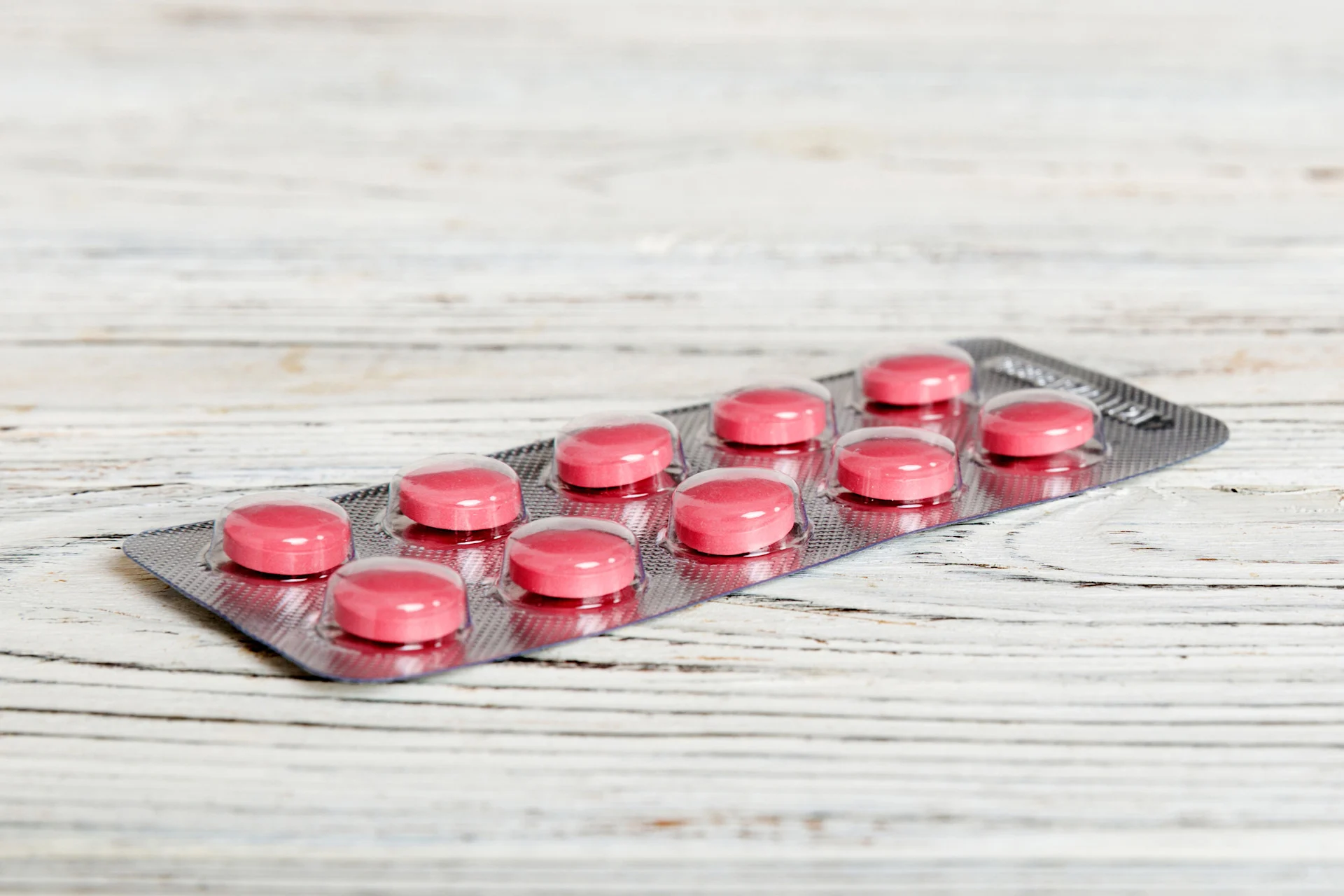Drug and Alcohol
Can You Take Benadryl After Drinking?

Short answer: I do not recommend mixing Benadryl (diphenhydramine) and alcohol, because together they can dangerously intensify sedation, slow breathing, and impair judgment.
Benadryl and alcohol: what I tell my patients before they mix the two
I often see how “common” medicines can become risky when alcohol is involved. Benadryl and alcohol is one of those combinations people underestimate.
If you are using alcohol to cope with sleep, stress, or allergies, you are not alone, but there are safer paths, and help is available. If you already mixed the two, I included a clear safety checklist below.
Early on, many of my clients decide to learn more about alcohol’s effects and treatment options. If you are in that place, you may find these guides useful: our overview of alcohol addiction and how alcohol rehab works. If you are exploring structured care that still fits your life, our explainer on outpatient rehab and our walk‑through of the Intensive Outpatient Program can help. If you are worried about withdrawals, read how detox works and what to expect from alcohol detox timelines.
Is It Ever Safe to Mix Benadryl and Alcohol?
I advise against it. Benadryl is a sedating antihistamine that depresses the central nervous system, and alcohol does the same. Together they amplify drowsiness, slow reaction time, impair coordination, and can make breathing more difficult. That combination raises the risk for falls, car crashes, and overdose. The National Institute on Alcohol Abuse and Alcoholism (NIAAA) specifically lists Benadryl/diphenhydramine among allergy medicines that interact with alcohol.
What Can Actually Happen if I Take Benadryl After Drinking?
People commonly report extreme sleepiness, confusion, blurred vision, slurred speech, and unsteady walking. In higher amounts, the two can suppress breathing and lead to loss of consciousness. Driving risk is real: even diphenhydramine alone impairs driving performance, and adding alcohol multiplies impairment.
Red‑flag symptoms that need urgent help:
Trouble breathing, repeated vomiting, or fainting
Severe confusion, agitation, or hallucinations
Seizure or inability to be awakened

We’re Here To Help You Find Your Way
Would you like more information about Benadryl and alcohol? Reach out today.
Does “Just One Drink with One Benadryl” Matter?
Yes. Even small amounts of alcohol can make it dangerous to drive, and alcohol–medication interactions can be harmful even when taken at different times the same day. That is because timing, dose, body size, and other medicines you take change how strongly the two depress your nervous system.
Are some Allergy Medicines Safer with Alcohol than Benadryl?
Second‑generation antihistamines such as loratadine and cetirizine are typically less sedating than diphenhydramine. That said, NIAAA also lists these allergy medicines as interacting with alcohol, so I still recommend avoiding alcohol when you take them, especially if you plan to drive or operate anything where alertness matters.

We’ll Lead You to New Heights
Do you have more questions about Benadryl and alcohol? Reach out.
What About ZzzQuil or Tylenol PM?
ZzzQuil is diphenhydramine. The official label says, “avoid alcoholic beverages,” and some liquid ZzzQuil products themselves contain 10 percent alcohol.
Tylenol PM combines diphenhydramine with acetaminophen. Alcohol plus acetaminophen raises the risk of serious liver injury, especially with heavy or regular drinking. The FDA highlights the liver risks of acetaminophen and urges caution.
If sleep is hard for you, there are safer approaches than mixing alcohol with any sleep aid. Cognitive‑behavioral tools for insomnia, regular sleep timing, and addressing anxiety or trauma in therapy often help more and carry fewer risks.
I Already Mixed Them. What Should I Do Right Now?
Stop drinking and do not take more Benadryl.
Do not drive or be alone. Ask someone you trust to stay with you for a few hours.
Hydrate with water or electrolyte fluids.
Avoid other depressants such as opioids, benzodiazepines, sleep medicines, or cannabis that can compound sedation. NIAAA notes the risk multiplies when depressants are combined.
Call For Help if you feel very drowsy, confused, short of breath, or you are worried. If symptoms are severe, call emergency services.

We’re Here To Help You Find Your Way
Do you need advice about Benadryl and alcohol? Reach out today.
Who Is at Highest Risk From Mixing Benadryl and Alcohol?
Older adults. Diphenhydramine is on the American Geriatrics Society’s Beers Criteria of medicines to avoid in older adults because of strong anticholinergic and sedating effects. Alcohol adds more impairment and fall risk.
People taking other sedating medicines. Benzodiazepines, sleep aids, antipsychotics, muscle relaxants, and opioids all add up with alcohol and diphenhydramine.
Anyone with breathing problems such as sleep apnea, asthma, or COPD.
Anyone who binge drinks or drinks daily. Risk of injury and, with acetaminophen‑containing products like Tylenol PM, liver damage increases.
How Long Should I Wait Between Benadryl and Alcohol?
There is no universally “safe” interval. NIAAA emphasizes that alcohol and medicines can interact even when not taken at the same time. The most cautious approach is to avoid alcohol for the rest of the day after taking diphenhydramine, and avoid diphenhydramine the rest of the day after drinking. When in doubt, skip the alcohol or choose a non‑sedating allergy strategy that day.

We’ll Lead You to New Heights
Would you like more information about Benadryl and alcohol? Reach out today.
Safer Ways to Handle Allergies if You Plan to Drink
Address triggers first. Pollen checks, air filters, saline nasal rinses, and showering after outdoor exposure reduce symptoms without sedation.
Use non‑sedating options early in the day after discussing with your clinician. Some people do better with intranasal steroid sprays started before allergy season.
Skip alcohol on heavy allergy days or when you need any sedating medicine.
Talk with your prescriber if you take anxiety, sleep, or pain medicines. The combination with alcohol is often the biggest risk.
A Quick Story From My Practice
A.N., 26, had wine at a friend’s house, took Benadryl for hives, and felt “okay to drive.” On the way home, she clipped a curb and scared herself badly. We processed it in session, built a plan for allergy flares that does not rely on sedating meds after drinking, and also explored her pattern of drinking to unwind. She switched to a non‑sedating allergy plan and added coping skills for stress. Small changes prevented a bigger crisis.
If you see yourself in A.N’s experience and want structured support without pausing school or work, read how our outpatient addiction treatment works at The Edge.
What if Mixing Benadryl and Alcohol Has Become a Habit?
Sometimes people mix the two to “knock themselves out,” to mask anxiety, or to come down after stimulants. That is a sign your body and brain are asking for help. Many people also find that anxiety or depression intensifies alcohol use, which is called dual diagnosis and benefits from integrated care. You can learn what this looks like in our guide to dual diagnosis treatment.
When alcohol is difficult to cut back, we can map a plan together that may include therapy, medical support, and, when appropriate, a safe referral for detox before returning to outpatient care. Our team helps people through each step, from first call to long‑term recovery, starting with a conversation about your goals.
Will One Glass of Wine with Benadryl Kill Me?
Most people will not have a life‑threatening reaction to a single small combination, but impairment can be significant, and crashes and falls are the real danger. It is not worth the risk, especially if you need to drive or if you are sensitive to sedatives. NIAAA cautions that even small amounts of alcohol can make driving dangerous, and interactions can occur even when alcohol and the medicine are taken at different times.
Can I Drive After Taking Benadryl if I Have Not Been Drinking?
Driving performance can be impaired by diphenhydramine alone. Many controlled studies and federal safety reviews flag this risk, so plan not to drive when you take it.
Does Benadryl Increase My Blood Alcohol Level?
It does not raise your measured blood alcohol concentration, but it adds to alcohol’s sedative effects on your brain. The result feels like “more drunk” at the same BAC.
What About “Alcohol‑free” Sleep Aids?
Check the active ingredient. If it is diphenhydramine or doxylamine, avoid alcohol the same day. Official labels for diphenhydramine sleep aids instruct users to avoid alcoholic beverages, and some liquid products actually contain alcohol.
Is Tylenol PM with a Drink Safer than Benadryl Alone?
No. Tylenol PM adds acetaminophen, and alcohol plus acetaminophen can injure the liver. The FDA highlights acetaminophen‑related liver risks, which become more concerning with regular or heavy drinking.
Practical Next Steps
If you are using alcohol to self‑medicate sleep, anxiety, or pain, consider speaking with us. Start by learning how alcohol rehab works and what to expect from outpatient care.
If you are concerned about withdrawal, review how detox works, then we can plan a safe step‑down to outpatient treatment.
My Bottom Line as a Clinician
I urge my clients to treat Benadryl plus alcohol as an unsafe mix. The risks are additive and sometimes unpredictable, particularly with other sedatives on board or in older adults. Labels and federal health agencies are clear about avoiding alcohol with diphenhydramine, and the safest choice is to pick either the medicine or the drink, not both the same day.
If you want, I can help you build a personalized allergy and sleep plan that avoids risky combinations, and, if alcohol has started to feel bigger than you want it to be, we can talk through care options that fit your life at The Edge Treatment Center.

We’re Here To Help You Find Your Way
If you or a loved one is struggling with addiction, there is hope. Our team can guide you on your journey to recovery. Call us today.
Written by
The Edge Treatment Center
Reviewed by
 Jeremy Arzt
Jeremy ArztChief Clinical Officer
Drug and Alcohol
September 10, 2025
